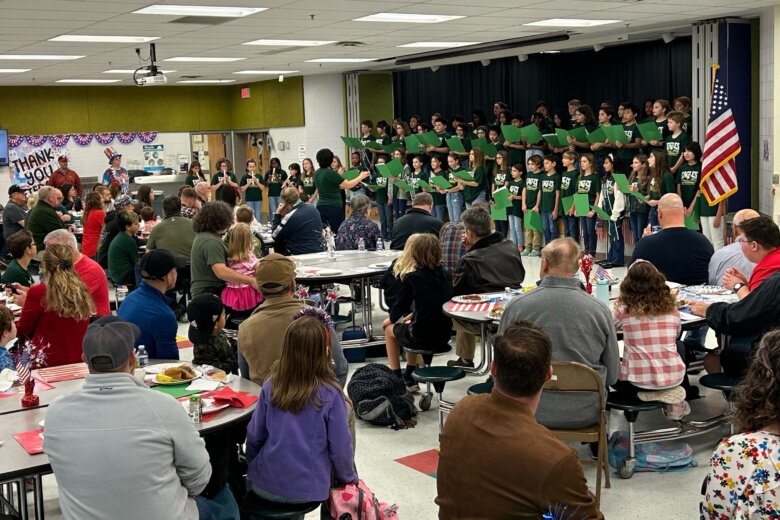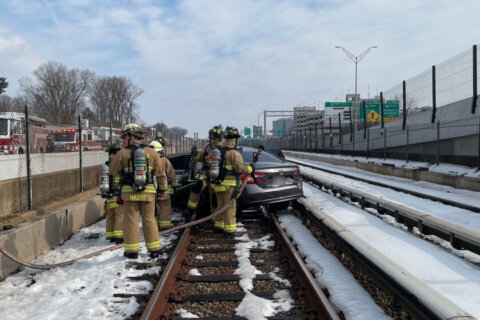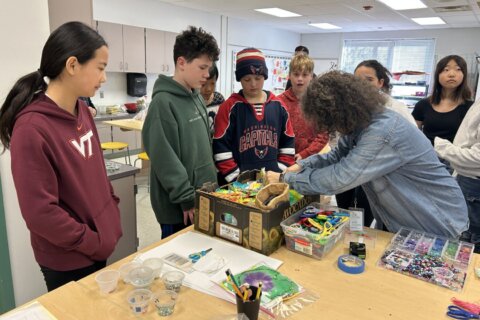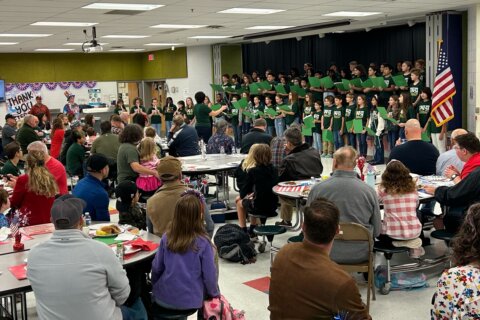
At White Oaks Elementary School in Burke, Virginia, on Friday morning, students and staff held a veterans breakfast to honor military-connected members of the school community.
Part of the crowd enjoying musical performances like “This Land Is Your Land” and “Yankee Doodle Dandy” from the young Fairfax County Public School students was retired Army Sgt. Ralphael DiBacco, now in her twentieth year as a kindergarten teacher.
DiBacco made the transition to education after her military service, and works in a school district with a high percentage of military families, given its proximity to Fort Belvoir and the Pentagon.
“Being a cryptologic warfare analyst, I had to decode,” DiBacco said. “With kindergartners, I have to decode what they know, what they don’t know, and how I can get them to where they need to be — just like I had to do in the military.”
DiBacco was asked which job skills or work ethics might smooth a transition from the adult world of the military to an environment in which the youngest students are five years old: “Being in the military and teaching is really not that different — it’s just the size of the person you’re teaching,” she said, chuckling.
“They all have the same type of mindset, but with different problems. You still work through it with them, and help them strategize,” she said.
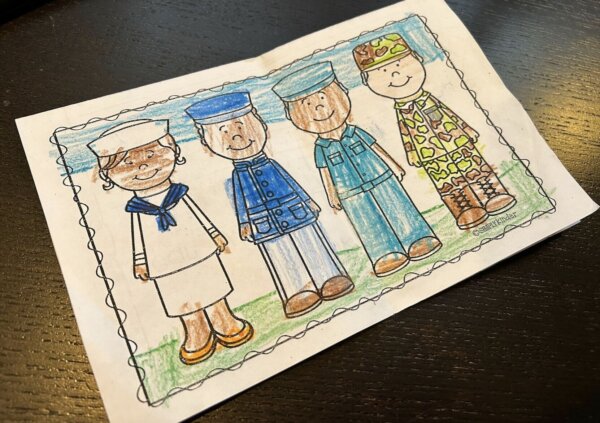
‘Some of the payment comes in hugs and high-fives’
Assistant Principal Tanya Siwik told the crowd at Friday’s event that veterans are often well-equipped to step into education.
“They are leading people through challenging times, and that directly translates into classrooms,” Siwik said.
Amid a nationwide teacher shortage, Siwik also said there are “several positions in Fairfax County that are perfect for people transitioning out of the military.”
Siwik said the county has a teacher resident program, where people can become fully-licensed teachers.
“To come in, we have programs where people can be instructional assistants, as well as classroom monitors where they support the entire school — and substituting is also a great opportunity,” she said.
Siwik said the work ethic of people who serve in the military is often similar to those who choose the education field.
“They’ve given in the military, their whole life is for service, and they’re looking for other ways to continue to give back. Maybe something where they’re not going to be deployed to another country, and can be in a situation where they can grow some roots by staying in the same place,” she said.
The rewards can be slightly different in education, Siwik said.
“Some of the payment comes in hugs and high-fives. You become a celebrity in the building, if the kids find out you have a military record,” she said.
“We have one person here who has been volunteering with us for 25 years, and he’s just known as ‘Captain’ — he’s legendary,” Siwik said.
At 91, former Navy pilot continues volunteering with elementary students
‘Captain’ is 91-year-old Navy Capt. Harley Stuntz, one of the guests of honor at the Friday morning breakfast.
Born in 1932, he graduated from the U.S. Naval Academy in 1955. The next year, Stuntz reported to his first ship — a destroyer, based in Norfolk — where he served for three years.
“But my eyes cleared up, and I was able to go into aviation,” Stuntz said. “I became a pilot in ASW — anti-submarine warfare.”
Now, in his ninth decade, Stuntz continues his 25th year of volunteering at White Oaks.
“I moved here before this school was built — I watched it being built,” Stuntz recalled.
Asked to describe the common threads between his military career and his dedication to volunteering, Stuntz paused.
“That’s a tough one to answer. I was a gun boss on the destroyer. And flying airplanes, I don’t know where the connection is,” referring to his volunteer role in the school. “I know it helps me — I’m get to do things, meet people, see the kids.”
“The school readily accepted me, which I appreciate,” Stuntz said. “So, I donate my time, do what they ask me to do, and I’m thrilled with that.”

